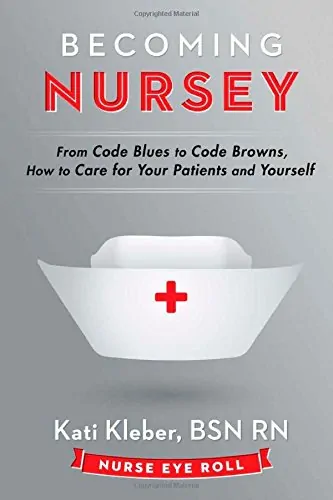With healthcare costs rising and the economy struggling to rebound, many hospitals and other healthcare facilities face budget cuts. Nurse staffing and budget cuts are two important issues that can significantly impact patient care. Unfortunately, these two issues often go hand-in-hand as hospitals look to save money by cutting staff.
It can lead to a decrease in the quality of care patients receive. And also puts them at a greater risk for errors and complications. In this blog post, we’ll look at how budget cuts can impact nurse staffing levels and what this means for nurses and the healthcare industry.
- Why Does Nurse Staffing Occur?
- How Does It Affect Nurses?
- How Does It Impact Patients?
- Why Is Appropriate Staffing Crucial to Patient Safety?
- Why Is Patient Satisfaction Important to the Healthcare Industry?
- How Does Nurse Staffing Impact a Hospital Budget?
- How Do Staffing Ratios Affect Nurses?
- Why Is It Important to Involve Staff Nurses in Budgeting?
- How Does Inadequate Staffing Affect Nurses?
Why Does Nurse Staffing Occur?
Nurse staffing and budget cuts are often intertwined because they attempt to save money within a healthcare organization.
When a hospital struggles to make ends meet, one of the first places they will look to cut costs is by reducing the number of nurses on staff. Mostly, this is done by decreasing the number of full-time nurses and replacing them with part-time or per diem staff.
Hospitals may also cut back on the number of hours that nurses work or the number of breaks they are given. It can lead to nurses feeling overworked and stressed, impacting the quality of care they provide. In some cases, it can also lead to errors and mistakes being made.
How Does It Affect Nurses?
Typically, when a hospital faces budget cuts, it will reduce the number of full-time nurses on staff. It can have a major impact on nurses, leading to a decrease in job security and stability.
It can also lead to nurses feeling overworked, as they may be expected to pick up the slack for the nurses who have been let go. In some cases, it may even lead to a decrease in pay.
Another way in which budget cuts can impact nurses is by reducing the number of hours they are allowed to work. It can make it difficult for nurses to maintain a healthy work-life balance and lead to them feeling overworked and stressed. In some cases, it may even lead to errors being made.
How Does It Impact Patients?
When hospitals cut back on nurse staffing levels, it can significantly impact patient care. Nurses play a vital role in patients’ overall quality of care. When nurses are overworked or understaffed, they are more likely to make mistakes.
This can risk patients’ errors, complications, and even death. In addition, when nurses are overworked or understaffed, they may not be able to provide the same level of care that they would if they were working under better conditions. This can lead to a decline in patients’ quality of care.
Why Is Appropriate Staffing Crucial to Patient Safety?
The basic element of any healthcare organization or hospital is providing quality patient care. Quality patient care cannot be delivered without the right number of nurses to provide it.
In other words, appropriate nurse staffing is crucial to patient safety. Maintaining the optimum nurse-to-patient ratio is important to ensure that patients receive the best possible care.
With that said, several factors need to be considered when determining the optimum nurse-to-patient ratio. These include the type of facility, the acuity level of patients, and the number of nurses available.
It is important to remember that each patient is different and has different needs. Some patients may need more care than others. For example, a critically ill patient will need more care than a stable patient. As such, the nurse-to-patient ratio needs to be adjusted accordingly to ensure that all patients receive the care they need.
In addition, the nurse-to-patient ratio also needs to be adjusted based on the type of facility. For example, a hospital specializing in treating critically ill patients will need a higher nurse-to-patient ratio than a general hospital. It is because the staff at a specialized facility needs to be able to provide more intensive care to their patients.
Why Is Patient Satisfaction Important to the Healthcare Industry?
Healthcare is a service-based industry, and as such, hospitals need to ensure that their patients are satisfied with the care they receive. Patient satisfaction has been linked to several positive outcomes, including improved health outcomes, increased patient compliance, and decreased length of stay.
In addition, patient satisfaction is also important because it can lead to increased patient loyalty. When patients are satisfied with their care, they are more likely to return to the same hospital for future care needs. They may also be more likely to recommend the hospital to their friends and family.
How Does Nurse Staffing Impact a Hospital Budget?
Hospitals with higher nurse-to-patient ratios tend to have lower costs. This is because nurses can provide more efficient and effective care when they are not overworked.
In addition, hospitals with higher nurse-to-patient ratios also tend to have shorter lengths of stay. Patients receive the necessary care on time and are less likely to experience complications.
It is important to note that the nurse-to-patient ratio is just one factor that can impact a hospital’s budget. Other factors, such as the number of patients being treated, the type of services being provided, and the hospital’s overall efficiency, can also impact costs.
Hospitals should ensure they have the right number of nurses for their patient population. This will help ensure that patients receive the best possible care and that the hospital can operate within its budget.
How Do Staffing Ratios Affect Nurses?
Staffing ratios are an important factor when it comes to the working conditions of nurses. When staffing ratios are too low, it can lead to nurses becoming overworked and stressed.
This can impact their ability to provide quality care and can also lead to burnout. In addition, low staffing ratios can also lead to increased safety risks for both patients and nurses.
When staffing ratios are too high, it can lead to nurses feeling underutilized and bored. This can impact their morale and motivation. In addition, high staffing ratios can also lead to increased costs for the hospital. Hospitals need to strike a balance when it comes to staffing ratios.
They must ensure that they have enough nurses to provide quality patient care. At the same time, they need to make sure that they are not overstaffing their nurses.
Why Is It Important to Involve Staff Nurses in Budgeting?
Well-run hospitals understand that nurses are critical to the care team and involve them in budgeting decisions. This ensures that the nursing staff’s needs are considered when allocating resources. It also allows nurses to provide input on improving patient care.
The involvement of staff nurses in budgeting can also lead to increased communication and collaboration between the nursing staff and other departments within the hospital.
This can help ensure that everyone is working towards the same goal of providing quality patient care. It can also help build trust between nurses and hospital staff members.
Overall, involving staff nurses in budgeting decisions is a good way to ensure that the nursing staff’s needs are considered. It can also improve communication and collaboration between nurses and hospital staff. This can ultimately help to improve the quality of care that patients receive.
How Does Inadequate Staffing Affect Nurses?
Inadequate staffing can lead to several problems for nurses. When staffing levels are too low, nurses may become overworked and stressed. This can impact their ability to provide quality care and can also lead to burnout. In addition, low staffing levels can also lead to increased safety risks for both patients and nurses.
Inadequate staffing can also lead to nurses feeling underutilized and bored. This can impact their morale and motivation. In addition, inadequate staffing can also lead to increased costs for the hospital.
Hospitals must ensure that they have enough nurses to provide quality patient care. At the same time, they need to make sure that they are not overstaffing their nurses. This will help ensure that patients and nurses receive the best possible care.
Wrapping It Up
Nurses are critical part of the health care team and should be involved in budgeting decisions. This will help ensure that their needs are considered when allocating resources.
In addition, the involvement of staff nurses in budgeting can lead to increased communication and collaboration between nurses and other hospital staff members, which can ultimately improve the quality of care that patients receive.
Finally, hospitals must ensure enough nurses to provide quality patient care without overstaffing them. This will help ensure that patients and nurses receive the best possible care.
Also Check Out:
- Why Leadership Is Important in Nursing
- Eliminate Paper and Improve Patient Care Across the Continuum with Tracked Clinical Competencies
- Can Whiteboards Improve Patient Satisfaction and HCAHPS Scores?






what is the source of your graphic image?
http://www.massnurses.org/legislation-and-politics/safe-staffing/p/openItem/706
I just got off my 7a-7p week end shifts. Exhausted as usual and tired of saying, “we need more staff to do this job safely and with compassion”! I know that staffing is vastly complicated and expensive, but so is safety and quality of care. We can do better! I so relate to that sense of dread going into a shift. Will there be enough LNA’s and will they be experienced on the unit and work well together and will I be able to be an effective leader for the team?
Check out my new 12 min YouTube called “Interruption Awareness: A Nursing Minute for Patient Safety”. http://www.youtube.com/watch?v=PGK9_CkhRNw
I think I need to work on an article that focuses on what would be different when we have enough staff!!! Ok it is on my list!
Beth
it would be a dream come true. I cannot even imagine what we could do for patients if we always had the help and resources we need.
Exactly! Wish I could sit down with a pen and paper and spell it out for them sometimes, but my efforts would likely be in vain.
We have gone to electronic PCR's and luckily, I have 2 hours after the ED receives the patient to complete my PCR and fax it to the ED. There are times when I get back to back calls and it is 6 hours later and I have not touched a PCR and that puts me over the edge!!! I can't imagine what it is like to have NO time to do your charts. And, I am all about narratives. I agree…I do the checkboxes because they are there but the narrative is best. Especially if I am ever going to be called upon to remember what I did or didn't do! Good luck and I hope they realize that cutting a tech can cost a LOT more than $400 bucks if something happens due to lack of staffing!